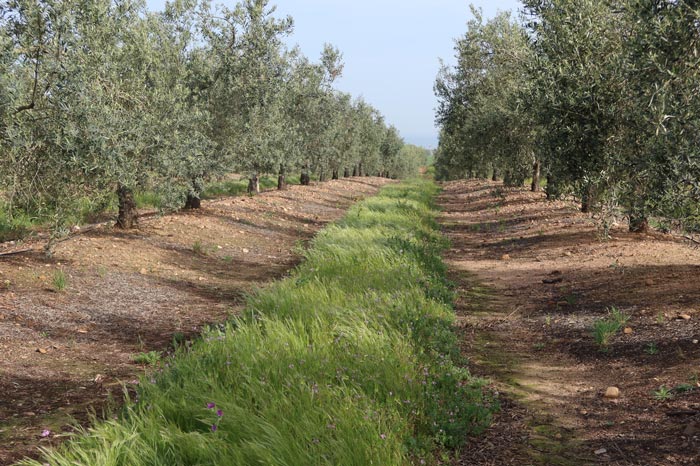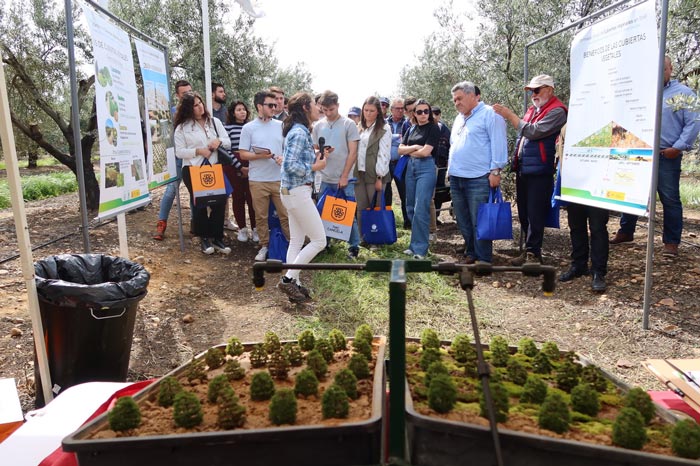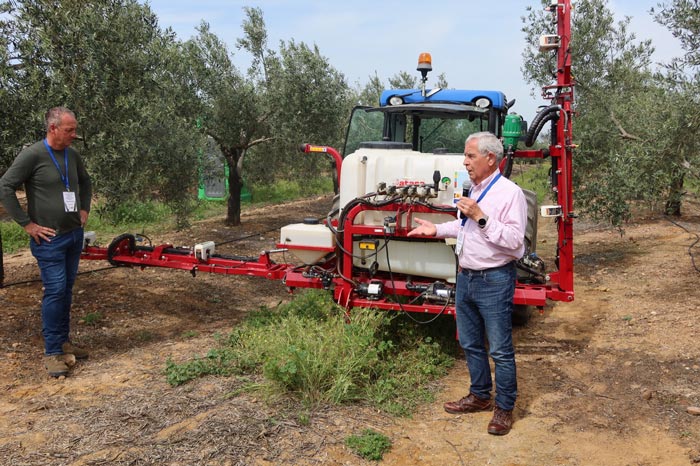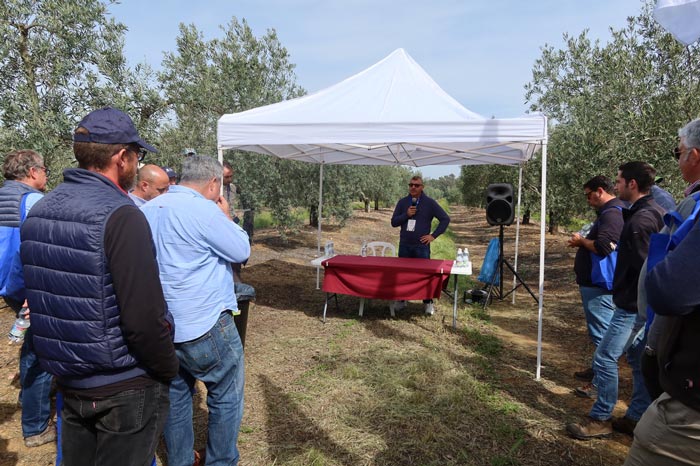Professional Web Portal and Printed Directory about Companies, Products and Services from the Horticulture, Gardening and Associated Markets.
AEACSV

On March 21, 2024, the Field Conference on management of vegetal covers in the cultivation of olive groves was held on the “El Calerón” farm, in Fuente Palmera, Córdoba), with a significant success in attendance since nearly 150 olive growers have come to learn how to apply this practice included as one of the CAP Ecoregimes.” Precisely, this was the second Conference held within the framework of the Agreement signed between the Ministry of Agriculture, Fisheries and Food (MAPA) and the Spanish Association of Conservation Agriculture Living Soils ( AEACSV ) “ Conservation Agriculture in the new CAP: a great opportunity for farmers and the environment .”
In the presentation of the Field Day, the AEACSV highlighted that erosion is, by far, the main problem faced by the olive grove and that the only way to avoid it is to protect the soil by covering it with living plant covers or pruning remains that prevent runoff, retain water in the soil and thus prevent erosion. The Association has highlighted that although there was already a significant implementation of vegetal covers in olive groves in Spain with 1,400,000 hectares in 2022, the inclusion in the CAP Ecoregimes has shot up this figure to 2,400,000 hectares in this first campaign, a very significant increase.
For its part, the Ministry of Agriculture has highly valued the high participation in this type of Conference, which has a double benefit: as basic training to be able to apply Conservation Agriculture techniques within the framework of the Ecoregimes of the New PAC, either Direct Sowing or Vegetable Covers; and as a showcase where the olive grower can verify, on a farm that already works in this line, that they are sustainable and profitable techniques if proper management is carried out.
Precisely, the day took place in a successful case of vegetal covers in olive groves, such as that of the “El Calerón” farm, which implemented vegetal covers in 2016 and is considered a reference farm for olive growers in the province of Córdoba.

Thematic Stations to learn about the implementation of roofs in olive groves
The Field Days are always planned with different Thematic Stations where you can learn step by step the implementation of these techniques. Thus, in Thematic Station 1 Ana Leyva Bollero, Agricultural Engineer at IFAPA, spoke about the environmental benefits of vegetal covers, which are many and varied: it prevents runoff, erosion and the loss of soil that it entails; prevents contamination of nearby aquifers; improves water infiltration and retention in the soil; fixes Nitrogen in the soil and captures Carbon, fighting climate change; increases biodiversity, improving biological pest control; improves soil structure and organic matter; reduces water evaporation; etc

At this station it was possible to learn about the different types of plant covers planted and their benefits: legumes for organic olive groves, grasses for better erosion control, and cruciferous plants to promote the health of the olive grove. Other types of covers with pruning remains or moss were also reviewed. Finally, a simple test was done with two small “olive groves” arranged in two trays, one with a cover and the other with bare soil, to which rain was applied. With this simulation it was possible to see how in a few minutes the olive grove without a cover let the water escape from the ground, dragging a lot of soil in its wake, while the olive grove with a cover retained the water and the soil was not lost.
In Thematic Station 2, Jesús A. Gil Ribes, Professor at the University of Córdoba, reviewed the specific machinery for the mechanical control of the cover in olive groves, both for its implementation and for its subsequent management (mechanical control and chemical). He also talked about other topics such as low compaction tires or new technologies with precision agriculture and sensors to be much more efficient in the application of phytosanitary products. The message from this station was clear: all studies show that well-managed cover is more profitable and requires fewer hours than plowing the land.

At Station 3, Francisco Javier García, farmer and owner of the “El Calerón” farm, commented on his experience as a success story of these techniques, highlighting the retention of water in the land, the improvement of the soil at the level of organic matter and the advantage of being able to enter the farm with the tractor at any time, even if it has rained. This olive grower highlighted that this type of Field Days are vital for other farmers to see the benefits of these techniques and be encouraged to apply them.

Finally, in Station 4, Joaquín Ruiz, from the Bayer Cropscience Spain technical team, commented on the new technologies that companies are developing to improve these conservation techniques, such as tools that calculate the CO2 that is captured in the soil of each plot; tools to know when there is greater risk of disease attack against the olive tree; or tools that analyze the number of insects in the plots and be able to make applications based on pest pressure.
